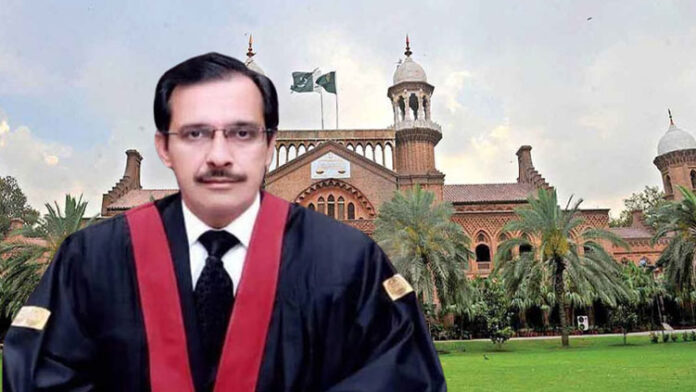Lahore, June 29: In a major move, the Lahore High Court has directed the Prime Minister’s Office (PMO) to issue instructions to all civil and military agencies, including the Intelligence Bureau and Inter-Services Intelligence, against contacting or approaching “any judge” or member of their staff.
Justice Shahid Karim issued the directions in a written order on the basis of a complaint filed by an anti-terrorism court (ATC) judge in Sargodha over harassment after he allegedly refused to meet officials of an intelligence agency.
Former LHC chief justice Malik Shahzad Ahmad Khan had taken suo motu notice on the ATC judge’s complaint. However, Justice Karim took over the proceedings after Khan’s elevation to the Supreme Court.
The order also directed all police officers in Punjab to not contact directly any judge of the superior judiciary or the sub-ordinate judiciary regarding the merits of any pending judicial proceedings before these courts.
It further stated that measures regarding the security of ATCs across Punjab would only be put in place “with the consultation and concurrence of the learned judge of that court and not otherwise”.
The court warned that the IGP, and chief of police of the division or district will be personally held responsible and will be proceeded against in contempt of the orders in the LHC in case of violation.
Additionally, the court has directed the anti-terrorism courts in Punjab to prioritise cases filed on May 9 and to decide them on a priority basis.
The court has also ordered the judicial staff to fully cooperate with the investigation into the harassment of the judge in Sargodha and to provide video recordings of the investigation to the High Court by July 8.
The order concluded that the proceedings were adjourned till July 8.
Pakistan has had a long history of military agencies, particularly the Army and its intelligence service the ISI, of threatening, intimidating, or otherwise subverting judgments through direct action making legislation a difficult task. So, the LHC’s directive to the PMO is a measure to make legal processes a fairer task free from any outside intervention.
In a written order dated June 27, the judge noted that it was “imperative” to proceed on certain issues that “regularly come before this court” and regarding which “directions are necessary to be issued in order to protect the independence of the judiciary”.
“Instructions shall go out by the Prime Minister’s Office to all civil or military agencies including the Intelligence Bureau as well as Inter-Services Intelligence (ISI) regarding strict directions not to approach or contact any judge whether of the superior judiciary or subordinate judiciary or any member of their staff in future,” he wrote.
Regarding the initial complaint, the Sargodha ATC judge reported incidents of harassment targeting his family following his refusal to meet with ISI officials on his first day in charge on June 7. The harassment included damage to his residence’s gas meter in Bahawalpur, where he previously served, and the receipt of a suspiciously inflated electricity bill for the preceding month. The judge also noted instances where his family members were harassed with personal information by unidentified individuals.
Some previous instances of intelligence agencies interfering in the judiciary include:
On March 25, six judges of the Islamabad High Court wrote a letter to the Supreme Judicial Council regarding “interference of intelligence agencies in judicial matters”.
These judges were Justice Mohsin Akhtar Kiyani, Justice Tariq Mahmood Jahangiri, Justice Babar Sattar, Justice Sardar Ejaz Ishaq Khan, Justice Arbab Muhammad Tahir and Justice Saman Rafat Imtiaz.
Four judges of the Lahore High Court (LHC) received threatening letters a day after some Islamabad High Court judges got similar post.
IHC’s Justice Babar Sattar had pointed out alleged interference by the Establishment in judicial affairs.
Justice Sattar penned a letter to IHC Chief Justice Aamer Farooq, informing him that he was asked to back off from the audio leak case.
The case is related to the petitions filed by PTI founder’s wife Bushra Bibi and Najam Saqib, son of former chief justice of Pakistan (CJP) Saqib Nisar, last year against the audio leaks.







